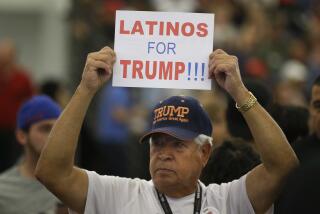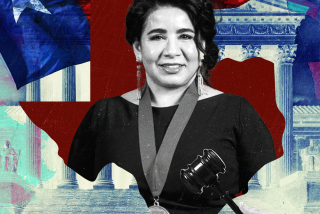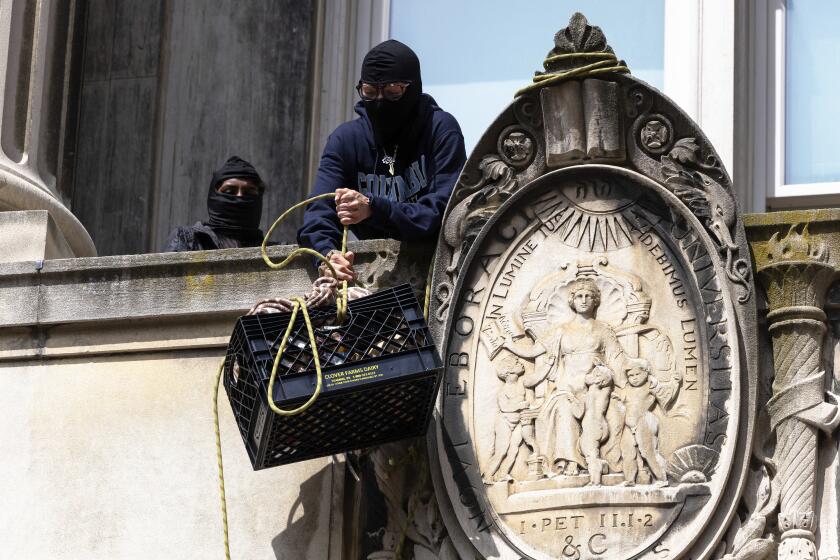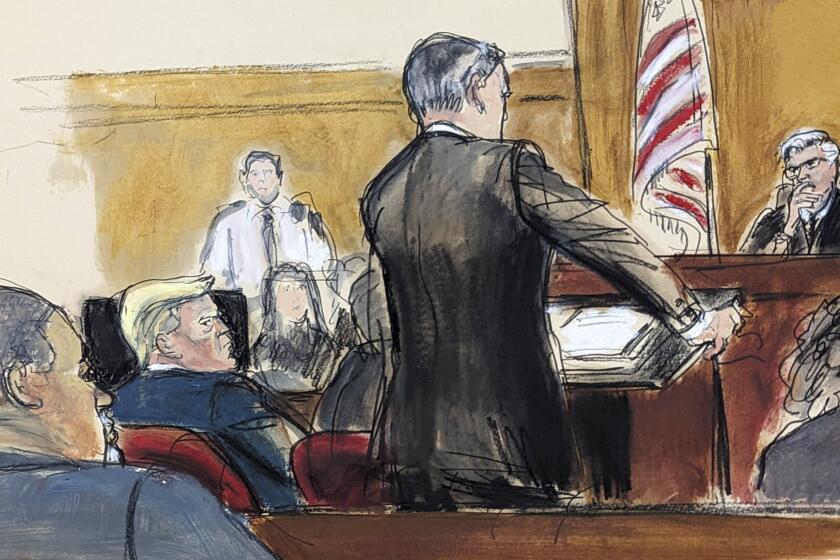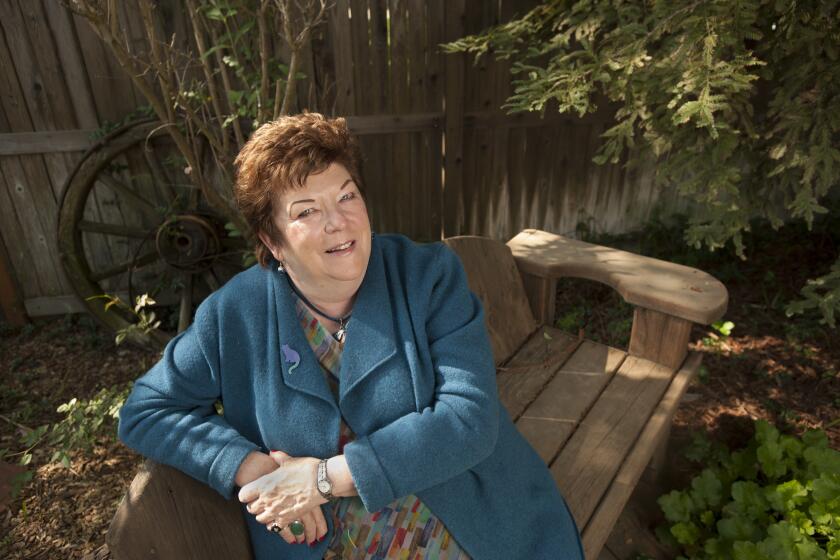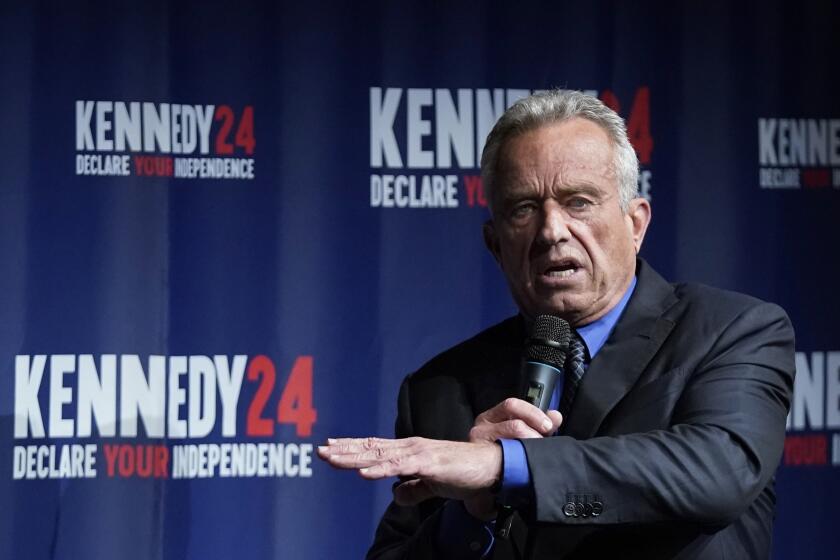Latinos don’t see themselves fully reflected in Biden’s judicial picks
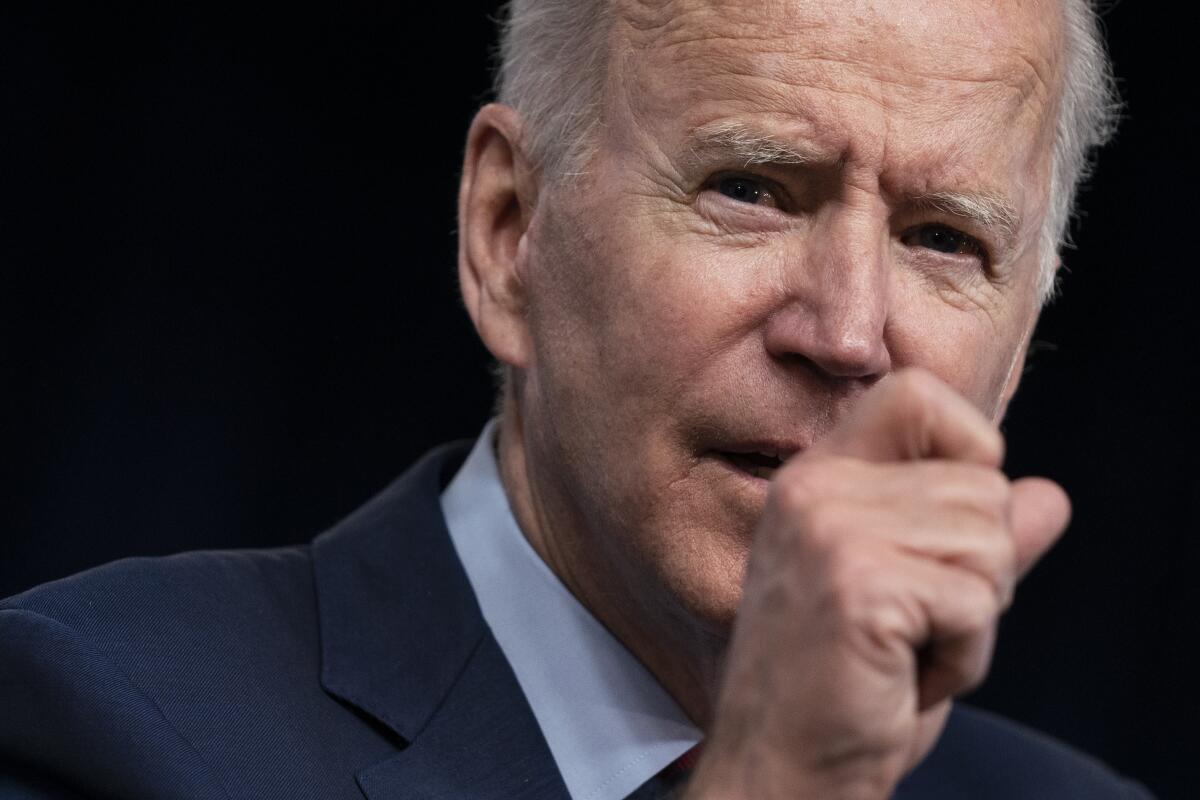
Two-thirds of President Biden’s nominees to federal courts have been people of color; 70% are women and 8% identify as LGBTQ.
His first choice for the Supreme Court, Justice Ketanji Brown Jackson, is the first Black woman to serve on that bench.
But when it comes to Latinos, Biden’s record in expanding the diversity of the U.S. judicial system is falling well short of the community’s size and growth, advocacy groups say.
“He has appointed Blacks at an unprecedented rate, and he has done very well for Asian Americans,” said Thomas A. Saenz, president of the Los Angeles-based Mexican American Legal Defense and Educational Fund, or MALDEF. “He has done very well for everyone — but Latinos.”
The group has criticized the White House for what it describes as a “harsh message of exclusion” and “shabby treatment of the Latino community in Biden’s judicial nominations.”
As Biden nears the midpoint of his four-year term, he has made 134 nominations to federal courts, and 75 of them have been confirmed by the Senate.
Across all federal courts, 42 of his 134 nominees are Black, 29 are Latino, 23 are Asian American and three are Native American.
Among his 36 nominations to U.S. appellate courts, 15 are Black, 10 are white, six are Asian American and five are Latino.
Progressives have lauded Biden’s court nominees not just for their racial and ethnic diversity, but for their “professional diversity” as well. They include lawyers who have worked as public defenders and consumer rights advocates, two of the nation’s top voting rights advocates and a leading abortion rights attorney.
But Saenz argues that the president is not significantly increasing Latino representation on federal courts and is leaving major appellate courts with no Latino judges at all.
MALDEF had urged the White House to nominate Latinos to the 7th Circuit Court, based in Chicago; the 10th Circuit Court, based in Denver; and the 5th Circuit Court, which includes Texas. These large appellate courts oversee regions with significant Latino populations, but have no Latino judges, and in some cases have never had one, Saenz said.
The D.C. Circuit Court of Appeals, often a steppingstone to the Supreme Court, has also never had a Latino judge. Saenz complained publicly in May after the White House made a third nomination to that court without choosing a Latino.
“President Biden apparently simply does not care,” his statement concluded.
A month later, the president announced another slate of nominees that included Bradley Garcia, a Justice Department lawyer and former clerk to Justice Elena Kagan, for a seat on the D.C. Circuit Court.
“Part of the problem is that the White House staff does not have prominent Latino voices,” Saenz said. “But it is also the president himself. He has a higher level of comfort and familiarity with the Black community and Asian Americans than with the Latino community.”
The White House declined to comment specifically on MALDEF’s criticism, but defended Biden’s record.
“The president has led the way, advancing extraordinarily qualified judicial nominees devoted to the Constitution and the rule of law, and who represent the personal and professional diversity of our nation in an unprecedented way,” Deputy Press Secretary Andrew Bates said in a statement.
Biden’s record on federal district judges is stronger when it comes to Latinos. Among his 95 nominees, 23 of them, or about 1 in 4, are Latino.
But Saenz noted last year that the White House chose only one Latino among its first six nominees for the Central District of California, which includes the counties of Los Angeles, Orange, San Bernardino, Riverside, Ventura, Santa Barbara and San Luis Obispo — a region where Latinos are likely to be the majority in the years ahead.
Analysts who closely follow the federal courts say Biden deserves praise for the diversity of his nominations and his speed in getting them confirmed.
“Biden was quick out of the box, and it’s the most diverse group of nominees ever,” said Russell Wheeler, a Brookings Institution fellow who tracks judicial nominations.
With 75 new judges confirmed by the August recess of his second year, Biden is ahead of former Presidents Trump and Obama, who had 50 and 40 confirmations, respectively, at this point in their second year in office.
But Biden and Democrats may struggle to match Trump’s record, particularly if they lose control of the Senate after the midterm election. In his four-year term, Trump appointed 232 judges and three Supreme Court justices.
Rakim Brooks, president of the liberal Alliance for Justice, praised Biden’s record so far on judicial nominees.
He “recognized the courts were unreflective of the country,” Brooks said, noting that most judges were white men who worked as corporate attorneys or as prosecutors.
Biden’s White House has looked for well-qualified attorneys who have represented unions, consumers, criminal defendants and civil rights plaintiffs.
Brooks said Senate Democrats will need to press hard to confirm several dozen of Biden’s nominees before the midterm elections, and then hope they can retain control of the Senate.
During Obama’s last two years in office, then-Senate Majority Leader Mitch McConnell (R-Ky.) blocked most of his court nominees, including Judge Merrick Garland, Obama’s choice for a Supreme Court vacancy.
If the Republicans win control of the Senate this fall, Brooks said, Biden’s bid to reshape the federal courts “will grind to a halt.”
More to Read
Get the L.A. Times Politics newsletter
Deeply reported insights into legislation, politics and policy from Sacramento, Washington and beyond. In your inbox three times per week.
You may occasionally receive promotional content from the Los Angeles Times.
